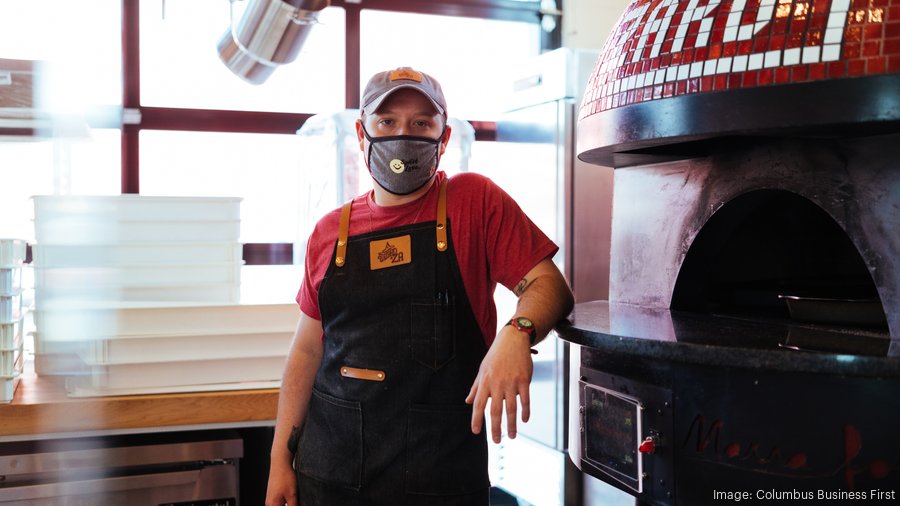When asked to describe his partnership with Fusian, Spencer Saylor chose a somewhat unexpected parallel.
“It’s like those old combined Pizza Hut/Long John Silver’s restaurants,” said Saylor, the founder of Wizard of Za. “But higher quality.”
Those combo units, products of corporate M&A and quests for synergy, are an old idea, but they might have some new relevance to a restaurant industry decimated by the Covid-19 pandemic.
The startup pizza maker spent the past year building his business – it had a 4,500 order wait list at its peak – and bouncing between temporary kitchens.
Saylor was confident in his idea, but a home of his own in that most traditional sense didn’t yet make financial or operational sense.
Meanwhile, Columbus-based fast-casual sushi and bowl chain Fusian had space that wasn’t being fully used thanks to Covid-19’s blow to dine-in eating, as well as tech tools and business support it was willing to share.
Wizard of Za now has a kitchen of its own inside a Fusian and Fusian has a new revenue source.
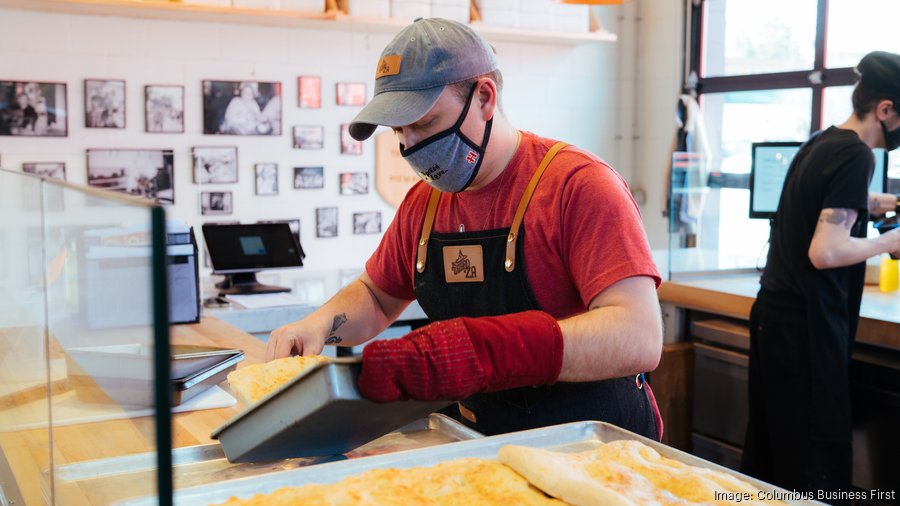
It’s a mutually beneficial idea that might see renewed application post-pandemic as operators look to cut expenses, improve sales and meet increasing calls for convenience by consumers.
Popups existed prior to the pandemic. So did incubators. So did ghost kitchens. So did commissaries. So did food halls.
But the pandemic has put restaurant operating models in a new light and that restaurant down the street might not be a restaurant in a traditional sense at all.
Seeing ghosts
Perhaps the most common new pitch is the ghost kitchen, or virtual kitchen – a brand that exists as an online menu likely made in an unassuming space customers will never set foot inside. It’s delivery only.
California-based Cloud Kitchens opened its Columbus facility at 1282 Essex Ave. last year and is the most emblematic of the idea. Cloud Kitchens provides multiple commercial kitchen spaces and additional support under one roof. Independent operators pay to use them.
It has several tenants, including Mario Fazio’s, a Cleveland-based restaurant and catering company that expanded to Columbus.
Then there is Indianapolis-based ClusterTruck, which has been in downtown Columbus since 2017. Its menu might resemble those at individual restaurants, but it’s all actually ClusterTrucks’ own brands being cranked out of its central kitchen and handed off to a line of delivery drivers who pull up to the space.
Though it does not bring outside brands into its space, the company landed a notable outside partner in the past year with Cincinnati-based Kroger Co. ClusterTruck now runs kitchens inside Kroger stores in Dublin and suburban Indianapolis, and serves as a captive prepared food provider for the grocery chain.
Franklin Junction is another twist on the idea. The Atlanta-based company started in the past year and has grown to 500 sites in 40 states, including one location in Columbus that houses its own Wing Depo brand.
“We want to be the Airbnb of the restaurant industry,” said Rishi Nigam, part of the Franklin Junction management team. “Even pre-pandemic, there was an issue of oversaturation. There are a lot of restaurants that have the real estate or have the kitchen and they can’t maximize it. If you’re 90% efficient, we can fill that last 10%.”
Franklin Junction connects existing restaurants or kitchens with brands that could provide a revenue boost.
The company also has established restaurant relationships with the likes of Frisch’s, Nathan’s Famous, Ruby Tuesday, Wow Bao and Fuzzy’s Taco Shop.
“I think mid-size, regional chains are something we can help scale up,” Nigam said.
Wing Depo, which can be located through any of the delivery apps, now has 65 locations. Wow Bao added 50 sites in January and aspires to grow to as many as 100 this year through Franklin Junction.
And it’s not just restaurants. Under-utilized kitchens at schools, colleges, event venues and more are potential landing spots.
Does it make sense?
There are questions about the value proposition.
Piada Italian Street Food looked at ghost kitchens as an option for expansion.
“It could make sense once business comes back a little bit,” Executive Chef Matt Harding said. “It would have to be in a super-dense area though.”
Piada’s development interest lies in the suburbs and that’s work it would rather handle itself.
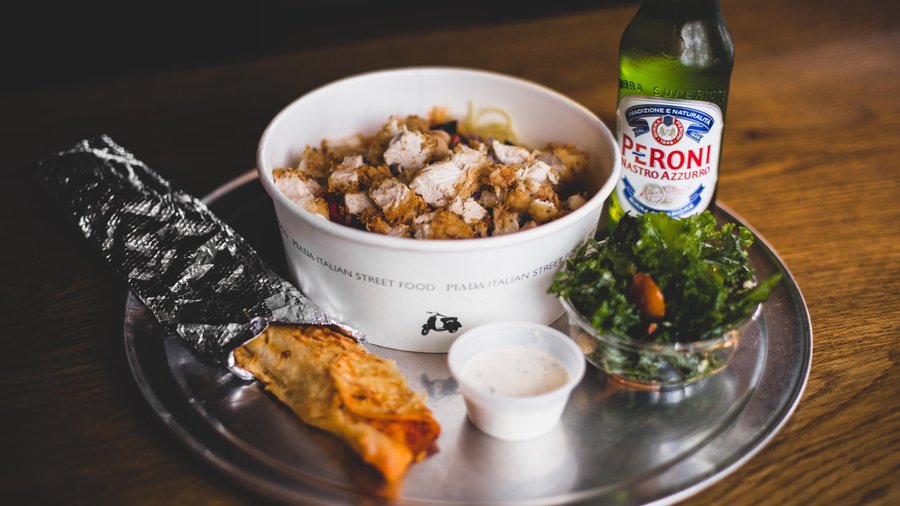
Matthew Jung and Matt Flaws opened Levant: Elevated Mediterranean at Polaris Fashion Place this past fall. Being a startup, they also looked at ghost kitchens as a potential way to launch, but felt they didn’t have enough control over the experience.
“They’re effectively a clearinghouse,” Jung said. “But we’re the ones who are ultimately accountable. When there is a problem, I can’t invite you in to make it right.”
The costs were also a concern. Though it is cheaper than owning or leasing real estate, Jung said the options they explored charged rent, a percentage of sale, fees for credit card transactions and more.
“It’s not outrageous, but it’s not the deal of the century either,” he said.
Matthew Heaggans, founder of Preston’s: A Burger Joint, which opened in the North Market in the fall, also looked into ghost kitchens.
“The margins just don’t make sense to me,” he said. “It seems like you’re in a situation where you have to perform really, really well out of the gate. But it’s rare that something just catches fire.”

Expansion appeal
As Franklin Junction is seeing with some of its national partners, established companies might be the better fit for these virtual operations and ideas. Just as those businesses can better absorb the fees of third-party delivery services, they also can they take on the costs of virtual operations.
Look no further than Dublin-based Wendy’s Co., which is staking at least part of its international expansion aspirations on ghost kitchens.
It has a deal with Miami-based Reef in Canada to set up several delivery-only kitchens in mobile trailers to fuel expansion in Toronto.
Real estate for a traditional restaurant is costly in a dense area like Toronto, but virtual kitchens could mean a rapid growth in sales and reach without nearly as much investment. Wendy’s is doing the same in India with Rebel Foods and Sierra Nevada Restaurants. It plans to open 400 locations total, 250 of which will be ghost kitchens.
A Wendy’s spokeswoman said the chain will test ghost kitchens in the United States and other international markets as well.
Breakfast and family dining chain Denny’s is launching two new “virtual brands” to be sold via delivery from its restaurants.
But it’s not just ghost kitchens that are appealing to well-established brands. Just as Wizard of Za found a home alongside an existing restaurant, bigger operators have done the same.
Gahanna-based Donatos Pizza began a partnership with the 540-unit Red Robin Gourmet Burgers in 2019 that puts Donatos pizzas on menus inside the casual burger joints. They shared 79 locations last year with plans to add 120 more this year.
That will have more than doubled Donatos’ size from 160 locations in 2019 at the start of the partnership to 380 by the end of this year. Even more significant, the deal has expanded Donatos reach nationwide.
“We have a lot of unique items, things that aren’t stock items off a shelf,” Donatos CEO Tom Krouse said. “Because of that it’s been a struggle for us to grow. We need volume for distribution.”
It now has those volumes and the ability to franchise around the country.
Columbus-based Sbarro also thinks it has a real estate and operations partnership to fuel its growth with England-based EG Group, operators of more than 5,000 convenience stores in eight countries. That duo has added Sbarros to two units in England and two here in Central Ohio.
The trend was coming
Other older ideas are taking on new relevance as well.
Opening a commissary always was the plan for Fukuryu Ramen, whose founder Jeff Tsao has a background in restaurants and food manufacturing, having grown in the family behind the Kahiki name.
“We wanted the restaurants to be scalable,” he said. “A commissary allows us to do high quality at a larger scale.”
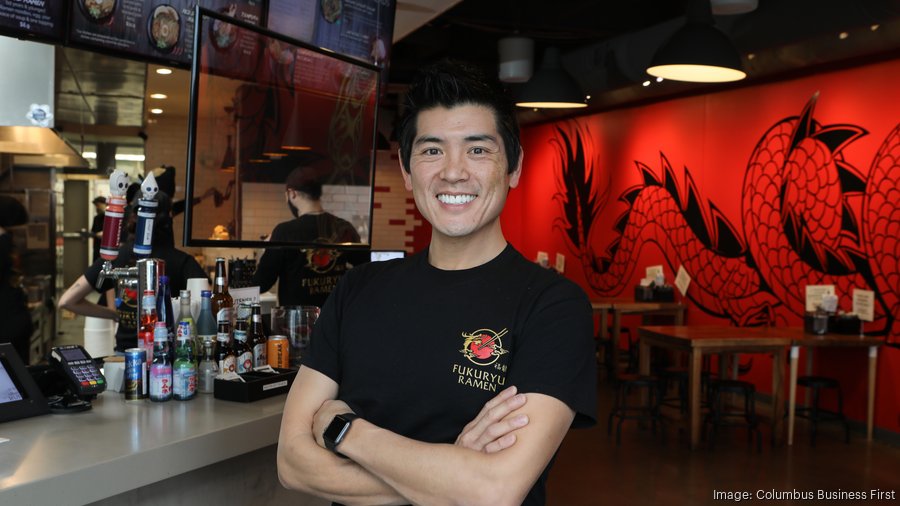
It improves consistency and makes the overall operation more efficient.
He opened Fukuryu’s 3,000-square-foot commissary in March and though the plan was always to have a small delivery hub there, the pandemic put an immediate importance on that capability.
“It’s actually kinda sad that it worked out,” Tsao said.
He said he doesn’t regret being in the right place at the right time with a hub of his own, but he understands what the sudden significance of that business means for the industry overall.
Sales at his two restaurants were down last year, but the delivery business was a lifeline.
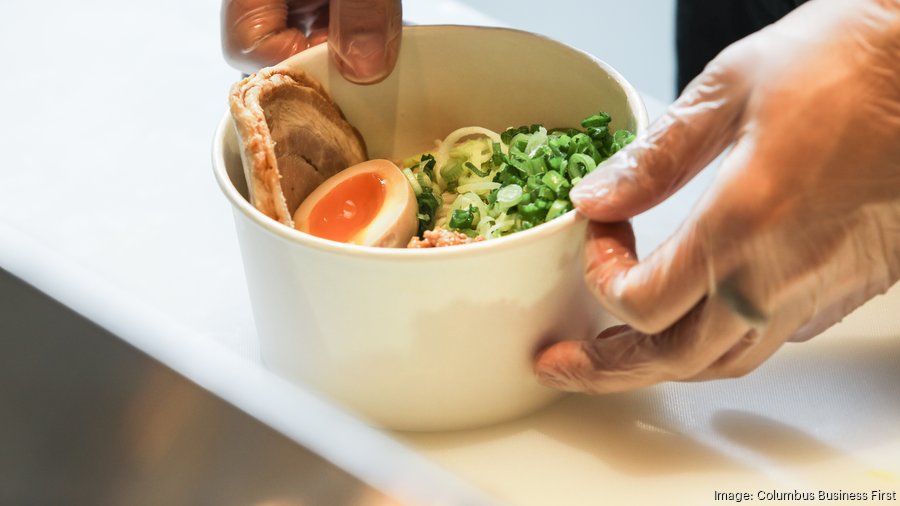
“We were fortunate to be in the right spot. We launched our own app a year or two ago,” he said. “Third-party delivery is still the most popular, but I think the (ghost/delivery kitchen) trend was coming anyway. The trend was there for easier access to food.”
Rapidly growing Condado Tacos, which now has 19 locations in seven states, also opened a Columbus commissary last year from which it runs local deliveries.
‘New opportunities for us’
Wizard of Za is not a ghost kitchen. Despite its name, Saylor wants customers to peek behind the curtain. The key difference is his business is carryout with some dine-in while ghost kitchens are delivery-only.
“Dine-in is struggling so I get why ghost kitchens make sense,” Saylor said.
Some of his needs and circumstances with Wizard of Za are the same. Real estate can be expensive and he needed technology support and other business services and knowledge apart from the food.
With no traditional front-of-the-house to worry about, Saylor and his team of three employees can focus on the kitchen and food.
“We believe in Spencer, in his vision, in his passion for food,” said Fusian co-founder Stephan Harman. “We’ve made every mistake. Our road to success has included plenty of failures. But that experience allows us to incubate (Wizard of Za) responsibly.”
It creates a potential new line of business for Fusian as well.
Perhaps there will be opportunities to expand Wizard of Za, potentially with other operators seeking similar collaborations in one of Fusian’s 12 other locations.
“Our platform is cuisine agnostic,” Harman said of the company’s restaurant support capabilities. “We view this as a nuts-and-bolts add-on that could create new opportunities for us.”
